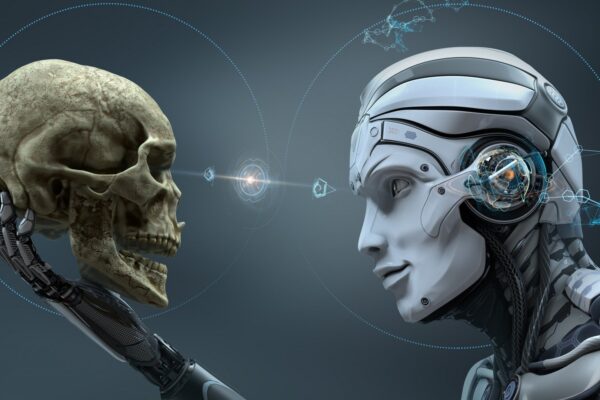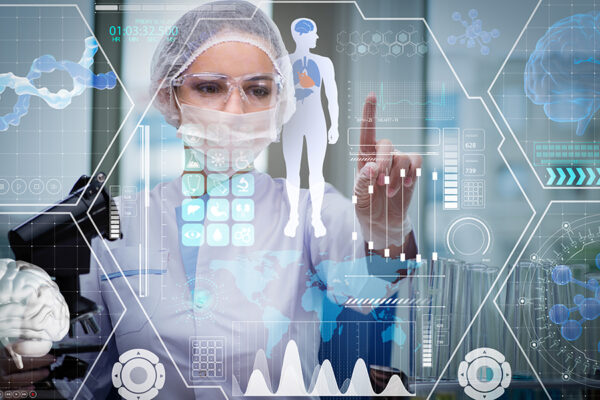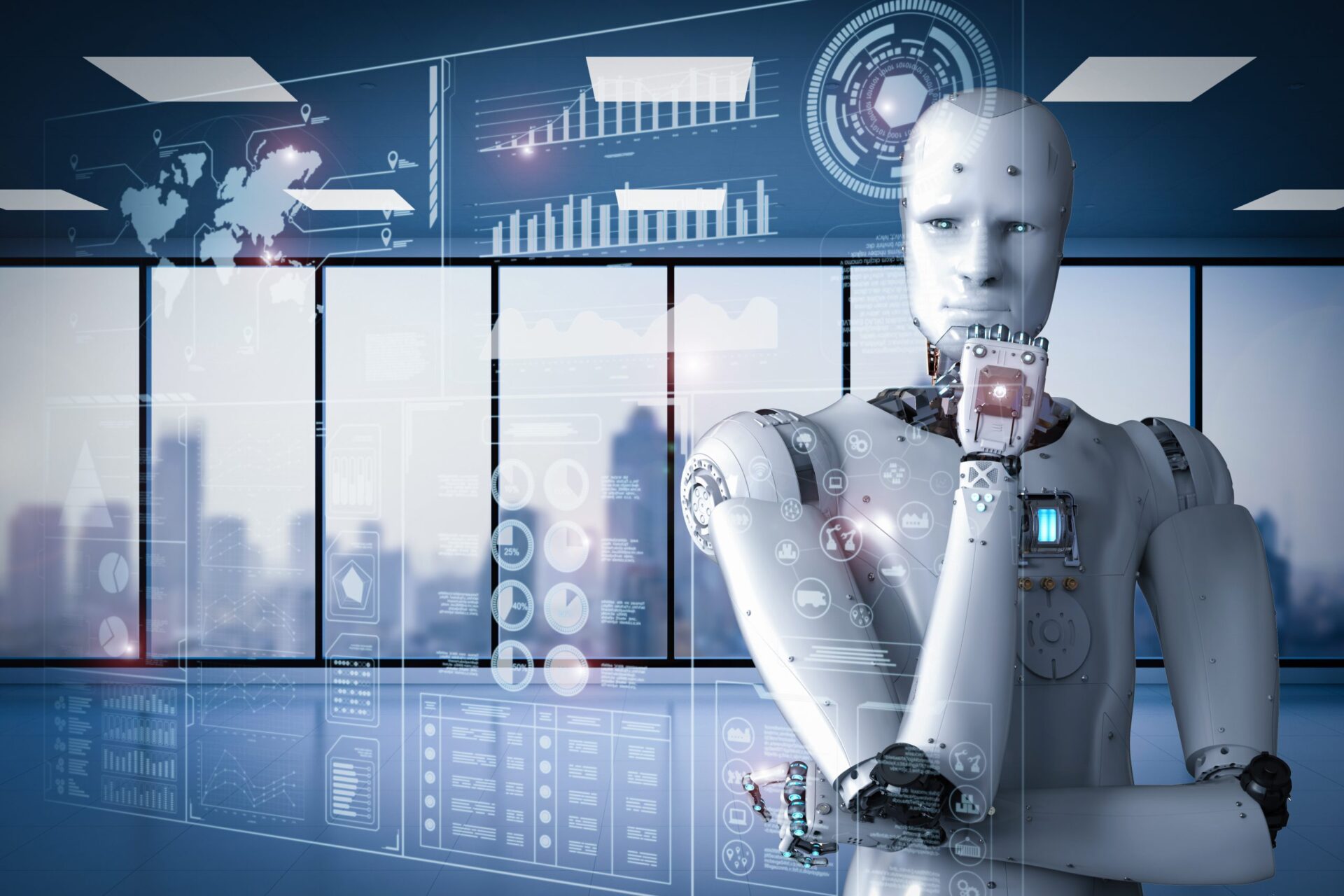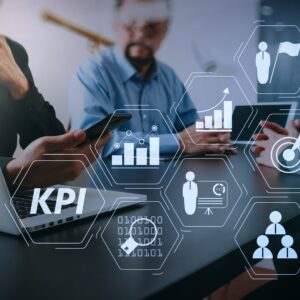Introduction
By 2023, Artificial Intelligence (Ai) will have revolutionized the world as we know it. We will be living in a world of unprecedented technological advancement, with Artificial Intelligence having infiltrated nearly all aspects of our lives. From medicine and healthcare, to transportation, communication, and even social interactions, Artificial Intelligence will have made a drastic impact in the way we interact with the world around us. We will all be living in a world where Artificial Intelligence has enabled us to become more efficient and productive.
Artificial Intelligence and its growing impact
Artificial Intelligence (AI) has become an indispensable part of our lives, with its impact growing at an exponential rate. Its application in various industries such as healthcare, finance, and transportation has transformed the way we live and work. AI-powered technologies have enabled faster and more accurate diagnosis in medicine, improved efficiency in financial transactions, and enhanced safety and automation in transportation. As AI continues to evolve, its impact will only grow stronger, shaping the future of our society and revolutionizing the way we interact with technology. Its potential for innovation and disruption is truly limitless.
The Future of AI
The future of AI holds endless possibilities and promises to redefine the way we live, work, and interact with technology. As AI continues to advance and evolve, we can expect even greater integration and automation in various sectors, from healthcare and finance to transportation and beyond. With ongoing research and development, AI will become more sophisticated and intelligent, enabling us to solve complex problems and make informed decisions like never before. The future of AI is bright, and it will undoubtedly continue to shape and transform our world in ways we can only begin to imagine.

AI's Disruption in Different Sectors
Artificial Intelligence’s impact on various industries is already evident, and its disruption is set to continue transforming sectors across the board. In healthcare, AI is revolutionizing diagnosis and treatment, enabling faster and more accurate care. The finance industry is benefiting from AI’s ability to analyze vast amounts of data, improving decision-making and efficiency. Transportation is being revolutionized by AI-driven technologies, with autonomous vehicles and traffic management systems enhancing safety and efficiency. AI’s disruption is not limited to these sectors alone; its potential to transform industries is vast and promising. From manufacturing to agriculture, AI is reshaping the way we work and interact in countless sectors.
Opportunities and Challenges
As Artificial Intelligence (AI) continues to advance, it presents both opportunities and challenges in our society. On one hand, AI has the potential to improve efficiency, productivity, and enhance our lives in numerous ways. It can automate repetitive tasks, provide personalized experiences, and enable faster decision-making. However, there are also concerns about the ethical implications of AI, such as privacy, security, and potential biases in algorithms. Balancing the opportunities and challenges of AI will be crucial as we navigate its social implications and ensure that its development is beneficial for all.
AI's Ethical Concerns
As Artificial Intelligence (AI) becomes more integrated into our lives, ethical concerns arise. One major concern is the potential for biases in AI algorithms, which can perpetuate discrimination and reinforce societal inequalities. There are also concerns about privacy and security, as AI collects and analyzes vast amounts of personal data. Additionally, the impact of AI on job displacement raises ethical questions about the responsibility to provide retraining and support for affected workers. Addressing these ethical concerns is crucial to ensure that AI benefits all individuals and upholds our values of fairness, privacy, and inclusivity.
Job Displacement and Retraining in the Age of AI
As Artificial Intelligence (AI) continues to advance and integrate into various industries, concerns about job displacement arise. AI has the potential to automate many tasks currently performed by humans, which could lead to job losses in certain sectors. However, it is important to recognize that AI also creates new job opportunities and has the potential to augment human capabilities. To address job displacement, it will be crucial for organizations and governments to invest in retraining programs and provide support for affected workers. By embracing AI and focusing on retraining, we can navigate the age of AI with confidence and ensure a smooth transition for the workforce.

AI and Human Collaboration: The Key to Success
AI and human collaboration will be essential for the success of AI in the future. While AI can automate tasks and enhance efficiency, it still relies on human input, creativity, and critical thinking. By combining the strengths of AI and human intelligence, we can leverage the power of technology while maintaining the human touch. Collaborative efforts will lead to innovative solutions, ethical decision-making, and inclusive development. Human collaboration is the key to ensuring that AI is used responsibly, effectively, and for the benefit of all. Together, humans and AI can create a brighter future.
AI's Influence on Global Governance
Artificial Intelligence (AI) is poised to have a significant influence on global governance. With its ability to analyze vast amounts of data and make informed decisions, AI can assist policymakers in addressing complex challenges such as climate change, economic inequality, and global security. AI-powered systems can help governments optimize resource allocation, improve public services, and enhance decision-making processes. However, the integration of AI in global governance also raises important questions about transparency, accountability, and the potential concentration of power. Striking the right balance between AI-driven governance and human oversight will be crucial for a responsible and effective future.
AI's Role in Sustainability and the Environment
Artificial Intelligence (AI) plays a crucial role in promoting sustainability and protecting the environment. Through advanced data analysis and predictive modeling, AI can help optimize resource allocation, improve energy efficiency, and reduce waste in various sectors. It can also assist in monitoring and mitigating the impact of climate change by analyzing vast amounts of data and identifying patterns and trends. Additionally, AI-powered systems can contribute to the development of innovative solutions for renewable energy, waste management, and conservation efforts. By harnessing the power of AI, we can create a more sustainable and eco-friendly future for generations to come.






